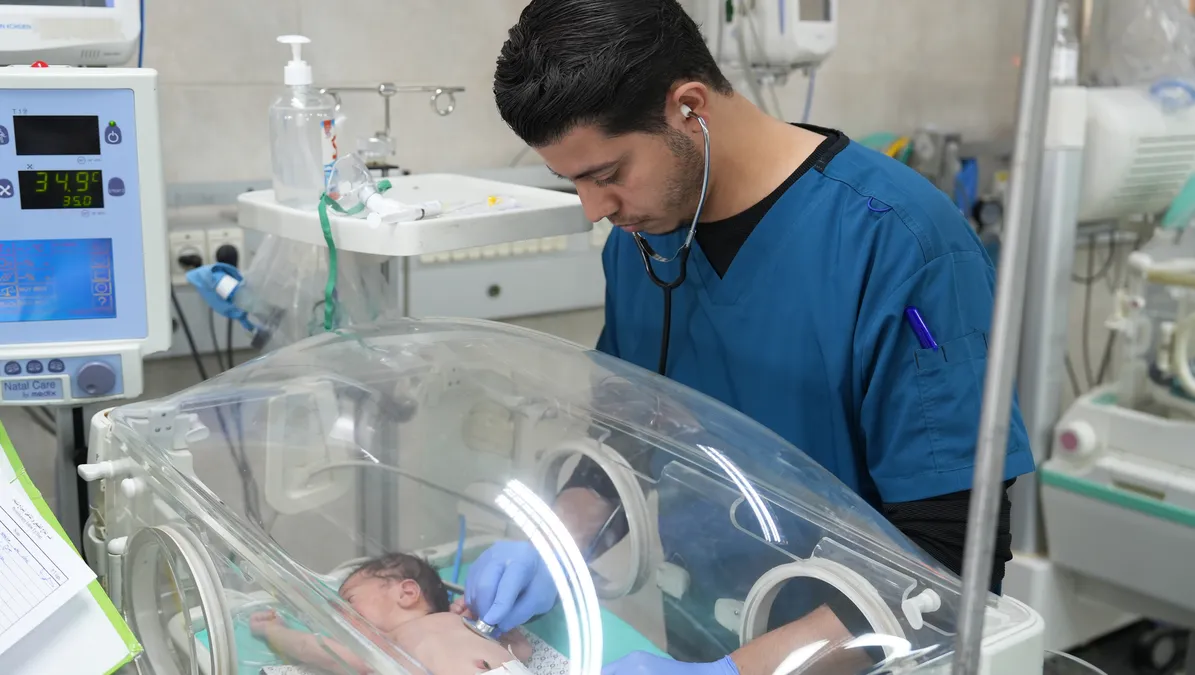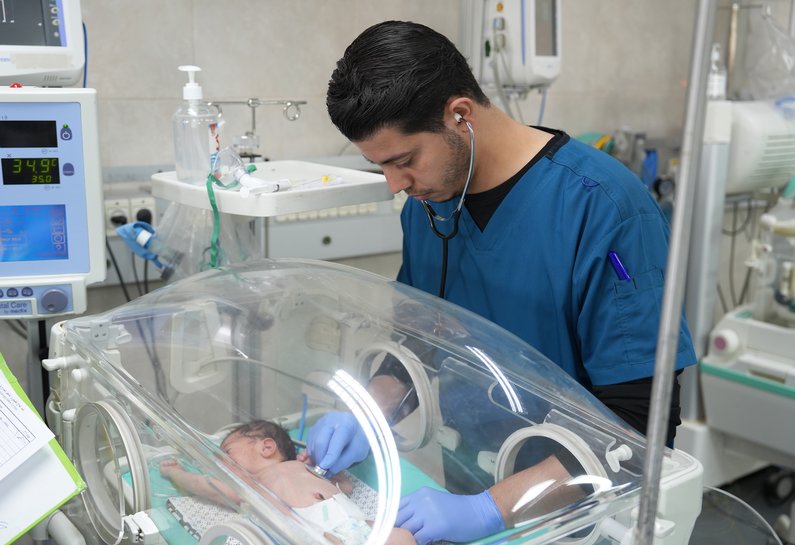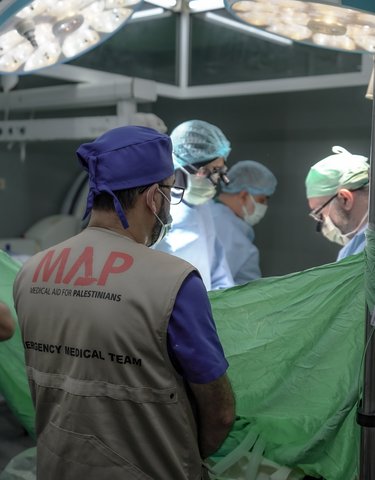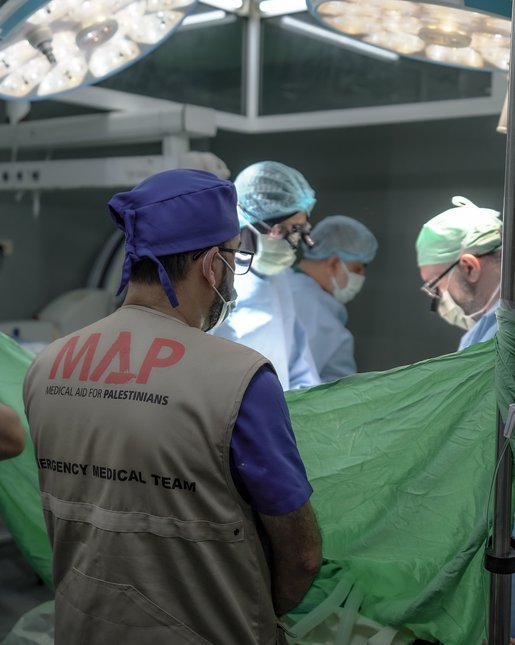Baby Aisha’s sight saved thanks to MAP’s support for neonatal care in Gaza
28 June 2023


Aisha’s immune system was weak, and she contracted a serious bloodstream infection due to bacterial germs during her delivery. She stayed in an incubator for 45 days and was connected to artificial respirators and under intensive care.
Due to Aisha’s premature delivery and low birth weight, she developed a greater risk of retinopathy of prematurity (ROP), an eye disease that can cause blindness. Aisha was urgently admitted to a neonatal care unit, supported by Medical Aid for Palestinians (MAP), at the Nasser Paediatric Hospital, where she was screened by ophthalmologist Dr Abdullah Alkashef and underwent laser eye surgery.
Dr Abdullah conducted follow-up tests to monitor Aisha’s condition as she needed eye injections. “It is critical to have eye tests after discharge from the hospital since ROP may not be resolved before discharge and prematurity may lead to other vision abnormalities such as the development of amblyopia (lazy eye), eye misalignment (strabismus), the need for glasses even at a young age, and cortical visual impairment. Therefore, every premature infant needs the long-term attention of an ophthalmologist,” he said.
Fedaa, Aisha’s mother, was grateful for Dr Abdullah’s care: “I did not think my daughter's condition was so serious. The laser eye surgery was decided for her the day after her eye tests. My baby girl could have completely lost her sight, had it not been for the urgent intervention and treatment of doctors.”
Babies in Gaza are born into a context of economic decline and a collapsing healthcare system with shortages of basic medical supplies and equipment. A large percentage of infant deaths occur during the first 28 days of life mainly due to prematurity, respiratory infections and congenital malformations.
In 2022, the neonatal mortality rate in Gaza was 7.9 deaths per 1,000 live births, according to data from MAP and the Ministry of Health, more than double the rate in Israel (2.7 per 1,000). In many cases, these deaths can be reduced through quality healthcare, early detection and intervention services for difficult cases.
My baby girl could have completely lost her sight, had it not been for the urgent intervention and treatment of doctors.
New-born deaths represented 68% of infant deaths in Gaza, according to the United Nations Office for the Coordination of Humanitarian Affairs (OCHA). Furthermore, 68% of drugs and medicines for maternal and child health are currently at zero-stock, meaning they have less than one month’s supply left.
Strengthening neonatal care in Gaza
Until 2016, no screening for ROP took place in Gaza. But with MAP’s support, screening has been ongoing for seven years and has increased from an average of 236 babies per year in 2016 to 367 in 2022. There is now a 100% ROP screening rate for those babies who need it.
Since 2005, MAP’s support for neonatal care has focused on building capacity in neonatal life support and neonatal safe transfer (the safe and appropriate transfer of new-borns from one unit to another); providing lifesaving drugs and equipment; training staff in the early detection of ROP; and, since 2015, a parallel project to improve infection control measures within neonatal intensive care units.
MAP has trained more than 705 healthcare providers including doctors, nurses and midwives who work at neonatal and obstetrics units and have helped to reduce morbidity and mortality rates among the more than 8,000 newborns admitted annually.
However, gaps still exist as the health needs are huge. Currently there are only two ophthalmologists responsible for screening and treatment of ROP, and four residents trained to give eye injections or treatment under supervision.
Dr Abdullah is one of the two ophthalmologists and was supported by MAP for a fellowship in Egypt to specialise in paediatric eye surgery and strabismus. “I always feel happy when parents are relieved that their children have not lost their sight. I’m also very proud of cascading the knowledge I have learnt to doctors, and hopefully building a better team to save the most vulnerable in Gaza,” he said.
Please consider donating to MAP today so we can continue our work to strengthen neonatal care in Gaza.

